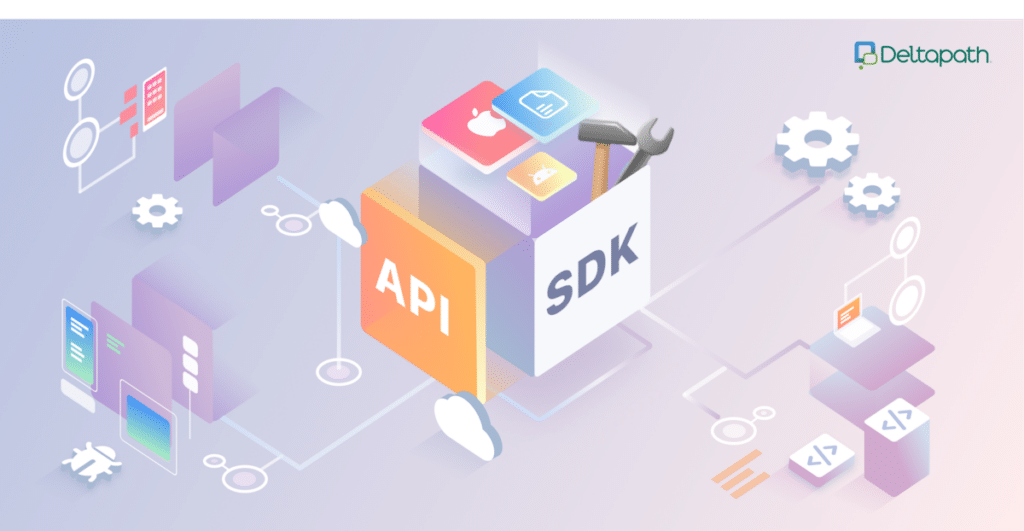
–
In the realm of unified communications (UC), both Application Programming Interfaces (APIs) and Software Development Kits (SDKs) are revered by tech professionals as catalysts of enhancement and innovation. APIs and SDKs hold the power to interlace, extend, customize, and even create new applications.
–
Although they are related concepts, APIs and SDKs serve different purposes but often work together to harmonize the capabilities of software systems with unrivaled finesse.
–
Let’s first focus on APIs, architects of communication. APIs define how software components communicate and work with each other by defining a set of rules, protocols, and tools. As gatekeepers of a standardized interface, APIs grant developers’ access to specific features, data, or services of an application or platform without untangling the web of underlying code. APIs essentially expose the functionality of an application, allowing developers to integrate that functionality into their applications. APIs can be Web APIs, allowing communication over the internet, or Local APIs for communication within a specific system or application. APIs alone cannot be used to build new applications but can enrich a company’s existing applications, transforming them.
–
Envision the following use case – picture the integration of your existing UC platform with a CRM system using APIs. This integration can simplify workflow and decrease app switching by allowing employees to access customer information and logs from one central location, your UC platform.
–
Unlike an API that works as an intermediary allowing different software applications to communicate with each other, an SDK, or Software Development Kit, emerges as a bountiful treasure trove, a cornucopia of tools, libraries, documentation, and sample code provided by a company or platform for developers. SDKs are a framework for building applications and integrating specific functionalities into software products. SDKs can help integrate communication features like voice, video, or messaging into third-party applications. Your organization may already have an application it is using companywide. Instead of aspiring to convince the powers-that-be of a new, opulent application, SDKs can unveil a realm of real-time enhancements, just waiting to be integrated and embraced.
–
Through the collection of resources like comprehensive documentation explaining how to use the SDK, its features, and APIs, SDKs make complex operations much more straightforward, accelerating the development process and making any project much more likely to be successful. For example, applications that need a map use Google Maps SDK to add functionality. Likewise, companies using mobile applications with voice and video capabilities may choose to improve their app by embedding messaging to enhance employee and customer experience.
–
APIs and SDKs have been around for a long time. They will continue to be around for a long time because developers love enhancing and building applications. With APIs and SDKs, developers can simply do the things they love to do while innovating and crafting technological wonders.
–
